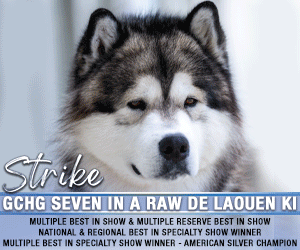Always A Critic

By Amy Fernandez
AKC has contended with troublemakers throughout its history. It’s not easy to stand out in this crowd. Although it’s been a century since Dr. Joseph Frank Perry, Jr. raised hell at 51 Madison Avenue, he may rank as the premier rabble-rouser to storm those ramparts.
Today, he is probably best remembered for his classic 1893 book Kennel Secrets, published under the pen name of Ashmont, the Massachusetts town where he lived and founded his kennel. His primary success came in Mastiffs. His breeding program was the source of most American foundation stock at that time. He also bred Pugs, Gordons, and Irish Setters.
Born in 1846, Perry served in the navy during the Civil War and graduated from Harvard Medical School in 1870. His flourishing Boston practice was matched by his success in his second career as a journalist. He earned his reputation in medical writing, but found his true niche as a dog writer. In 1893 he co-founded The Fancier’s Journal with another contentious figure of that era, Charles Mason.
Perry’s esteem for Mason was reflected in his introduction to Kennel Secrets where he thanked Mason for “his great kindness, sterling criticism, many valuable suggestions, and constant assistance.” These kindred spirits enlivened the 19th century dog world in every respect.
Mason was an equally prolific writer, first in England where he commenced his career writing for many of the up and coming publications devoted to dog shows. In America, he contributed to notable endeavors like Field and Stream. By far, his best remembered literary effort was the notorious Our Prize Dogs. Initially intended to be an ongoing effort, Mason’s unsparing criticism of the era’s big winners hit the dog world like a nuclear bomb. Its notoriety was only surpassed by his involvement in a headline dog scandal, the infamous Pointer Protest. It’s credited as a major impetus for the formation of AKC.
Perry and Mason were notoriously outspoken critics. Their favorite targets included top winning dogs, high profile judges, and especially AKC. Perry got off to a bad start with AKC from the get-go. Among other things, his big mouth got him ejected from the New England Kennel Club. Along with other high profile fanciers like James Watson, he vociferously objected to the idea of structuring AKC as a “club of clubs” rather than an organization more similar to England’s Kennel Club.
AKC eventually grew into this arrangement. But it didn’t work well at first because the few initial member clubs were clustered on the east coast, dominated by the same major players who ran AKC. It wasn’t an ideal example of the democratic process.
Within three years, Perry spearheaded a rival organization to offer fairer representation to all dog fanciers. In 1888 he became first president of The National Dog Club. Immediately, its large, influential membership threatened AKC’s success. Within a year, AKC began modifying its totalitarian policies to permit broader participation of fanciers throughout the country. The National Dog Club was a short-lived venture, but it accomplished its primary objective.
Mourned by his many friends, and derided by almost as many enemies, Perry was long remembered after his death in 1909.
Short URL: https://caninechronicle.com/?p=45541
Comments are closed












